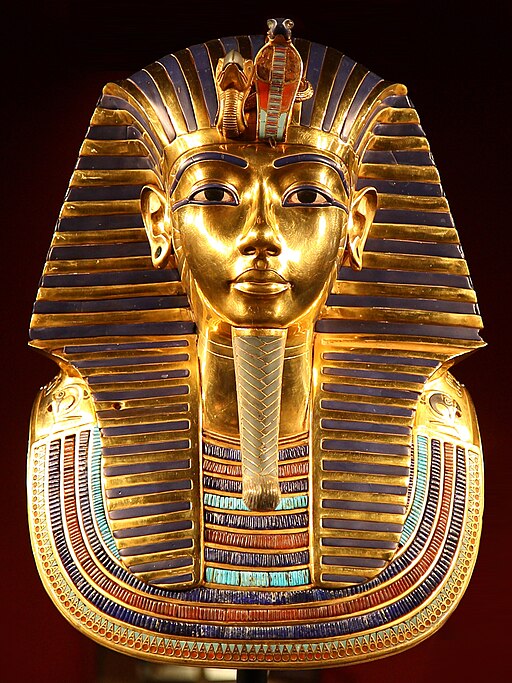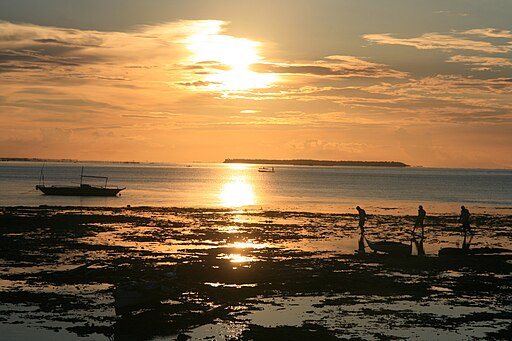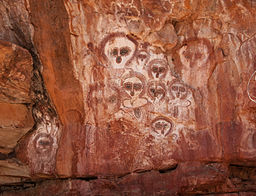
“Daedalus and Icarus” by Anthony van Dyck
“Daedalus and Icarus” by Anthony van Dyck portrays Icarus’s father warning his son Icarus first of complacency and then of hubris as he points to his head.
Icarus and his father attempted to escape their imprisonment using wings constructed from feathers and wax.
In this composition, Icarus is trying to impress his youthful son not to be complacent and fly too low as the sea’s dampness would clog his wings.
He also warns Icarus of the hubris of flying too high to the sun, where the heat will melt the wax in his wings.
Unfortunately, the young Icarus ignored or forgot his father’s instructions not to fly too high to the sun, and when the wax in his wings melted, he tumbled out of the sky.
Icarus drowned in the area which today bears his name, the Icarian Sea near Icaria, an island southwest of Samos, Greece.
Daedalus
In Greek mythology, Daedalus, the father of Icarus, was a skillful architect, craftsman, and artist and was seen as a symbol of wisdom and knowledge.
Homer first mentions Daedalus, but he is most famous for having created the Labyrinth on Crete in which the Minotaur, who was part man, and part bull, was kept.
Daedalus built the labyrinth for King Minos, who needed it to imprison his wife’s son, the Minotaur.
Daedalus invented and built the Labyrinth, but shortly after finishing it, King Minos had Daedalus and his son imprisoned within the labyrinth to ensure the labyrinth’s secrets remained secret.
Daedalus and his son Icarus then devised a plan to escape using wings made of wax that Daedalus had invented.
Icarus
In Greek mythology, Icarus is the son of the master craftsman Daedalus, the Labyrinth creator. His tragic story of failure at the hands of hubris sparking the idiom “don’t fly too close to the sun.”
Daedalus warned Icarus not to fly too close to the sun or too low to the sea. Overwhelmed with the excitement of flying, Icarus flew much too high, and as a result, the wax melted, and his feathers fell off.
Icarus plunged into the sea and death. The story of Icarus is often used to signify the dangers of over-ambition.
The study of the Icarus myth has led to many interpretations. The Icarus complex is a psychoanalysis and personality theory to describe a particular type of over-ambitious character.
Psychosynthesis has applied it to those in whom ambition exceeds their personality limits, leading to a backlash.
Icarus Complex
The Icarus complex is a psychoanalysis and personality theory to describe a particular type of over-ambitious attitude.
It is seen in a personality type that contains many or all of the following attributes:
- admiration-seeking narcissistic behaviors
- the notion that the past or present does not dictate the future
- the belief that no destination or goal is unreachable
- a foreboding sense of a future “crash and burn”
- a craving for immortality
- a conception of woman as an object to be used for narcissistic gains
“Daedalus and Icarus” by Anthony van Dyck
- Title: Daedalus and Icarus
- Artist: Anthony van Dyck
- Created: 1625
- Media: Oil on canvas
- Dimensions: Height: 1,153 mm (45.39″); Width: 864 mm (34.01″)
- Type: Mythological Art
- Museum: Art Gallery of Ontario
Daedalus and Icarus
Anthony van Dyck
Anthony van Dyck (1599 – 1641) was a Flemish artist who became the leading court painter in England after success in the Southern Netherlands and Italy.
Van Dyck started painting from an early age. He gained early success as a painter, becoming a master in the Antwerp guild in 1618. He worked in the studio of Peter Paul Rubens, who became a significant influence on his work.
Van Dyck worked in London for some months in 1621, then returned to Flanders for a brief time, before traveling to Italy, where he stayed until 1627.
He spent five years after his return from Italy in Flanders, and from 1630 was a court painter for Archduchess Isabella, Habsburg Governor of Flanders. In 1632 he returned to London to be the principal court painter at the request of Charles I of England.
He is best known for his European aristocracy portraits, most notably Charles I and his family and associates. He also painted mythological and biblical subjects.
Anthony van Dyck
- Name: Anthony van Dyck
- Birth: 1599 – Antwerp, Spanish Netherlands (modern-day Belgium)
- Died: 1641 (aged 42) – London
- Nationality: Flemish
- Movement: Baroque
- Notable Works:
- Equestrian Portrait of Charles I
- Charles I at the Hunt
- Cupid and Psyche
- Daedalus and Icarus
- Triple Portrait of Charles I
- Biblical Subjects by Anthony van Dyck
- Samson and Delilah
- Christ Crowned with Thorns
- The Rest on The Flight into Egypt
The Myth of Icarus and Daedalus Explained
A Virtual Tour of Art Gallery of Ontario
- “Massacre of the Innocents” by Peter Paul Rubens
- “I Am Half-Sick of Shadows, Said the Lady of Shalott” by John William Waterhouse
- “Daedalus and Icarus” by Anthony van Dyck
- Study for “Northern River” by Tom Thomson
- “The West Wind” by Tom Thomson
- “Round Lake, Mud Bay” by Tom Thomson
- “Sketch for Morning Cloud” by Tom Thomson
Icarus Complex
~~~
“Don’t fly too close to the sun.”
– Ancient Greek Proverb
~~~
Photo Credit 1) Public domain; Anthony van Dyck / Public domain; BY Wikimedia Commons.
Popular this Week








 Sponsor your Favorite Page
Sponsor your Favorite Page SEARCH Search for: Search Follow UsJoin – The JOM Membership Program
Sponsor a Masterpiece with YOUR NAME CHOICE for $5
Share this:
- Tweet
